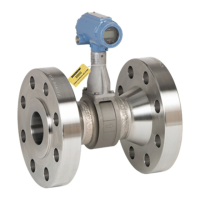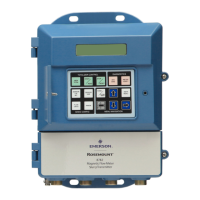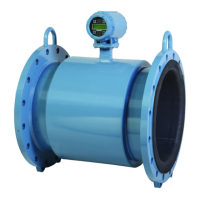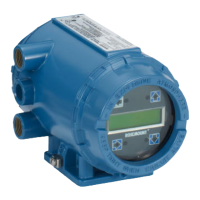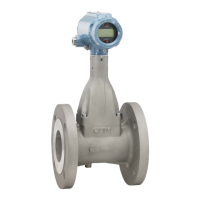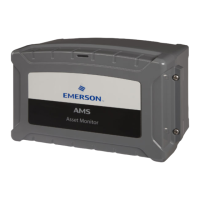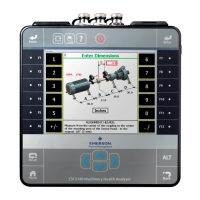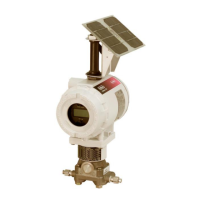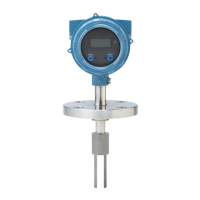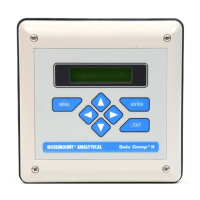4-3
Hardware and Software Maintenance and Troubleshooting
TROUBLESHOOTING
TABLES
The most common problems experienced by users of the Model 8800C
are listed in Table 4-1 along with potential causes of the problem and
suggested corrective actions. See Advanced Troubleshooting on page
4-6 if the problem you are experiencing is not listed here.
Table 4-1. Basic Troubleshooting - Model 8800C Smart Vortex Flowmeter
Symptom Corrective Action
Communication
problems with
HART-based Communicator
• Check for a minimum of 12 V dc at transmitter
terminals.
• Check communications loop with HART-based
communicator.
• Check for loop resistor (250 to 1000 ohms).
• Check for transmitter in multidrop mode.
• Check for transmitter in burst mode.
• Remove pulse connection if you have a three wire
pulse installation.
• Replace electronics.
Incorrect 4–20 mA Output
• Check for 12 V dc at transmitter terminal.
• Check URV, LRV, Density, Special Units, LFC–
compare these inputs with the sizing program
results. Correct configuration.
• Perform 4–20 mA loop test.
• Check for corrosion on terminal block.
• Replace electronics if necessary.
• Refer to Advanced Troubleshooting on page 4-6.
• See Appendix E: Electronics Verification for
electronics verification procedure.
Incorrect Pulse Output
• Check that 4–20 mA output is correct.
• Check pulse counter specifications.
• Check pulse mode and scaling factor. (Make sure
scaling factor is not inverted).
• Perform pulse test.
• Select pulse scaling so that pulse output is less
than 10,000Hz at URV (Model 8800C only).
Error Messages on
HART-based Communicator
• See alphabetical listing in the Error Messages
Table for the communicator in Appendix C: HART
Communicator.
Flow in Pipe, No Output Basics
• Check to make the sure that the meter is installed
with the arrow in the direction of process flow.
• Perform basic checks for Incorrect 4–20 mA
Output Problem (see Incorrect 4–20 mA Output).
• Check and correct configuration parameters in
this order:
K-factor, service type, materials, units, process
temperature, damping value, 4–20 mA trim,
meter body number, density, pulse mode, pulse
scaling, line size, pipe diameter, LRV, URV, LP
corner, trigger level, low flow cutoff.
• Check sizing. Make sure flow is within
measurable flow limits.
• Refer to Advanced Troubleshooting on page 4-6.
• See Appendix E: Electronics Verification for
electronics verification procedure.
Electronics
• Run a self test with the Model 268/HART
Communicator.
• Using sensor simulator, insert test signal.
• Check configuration, LFC, trigger level, STD vs.
actual flow.
• Replace electronics.
Application Problems
• Calculate expected frequency (see Appendix E:
Electronics Verification). If actual frequency is the
same, check configuration.
• Check that application meets viscosity and
specific gravity requirements for the line size.
• Recalculate back pressure requirement. If
necessary and possible, increase back pressure,
flow rate, or operating pressure.
Sensor
• Check torque on sensor nut (32 ft-lb).
• Inspect coaxial sensor cable for cracks. Replace
if necessary.
• Check that sensor impedance >10 Megohms.
Replace sensor if necessary (Replacing the
Sensor on page 4-15).
• Measure sensor capacitance at SMA connector
(100–200pF).
